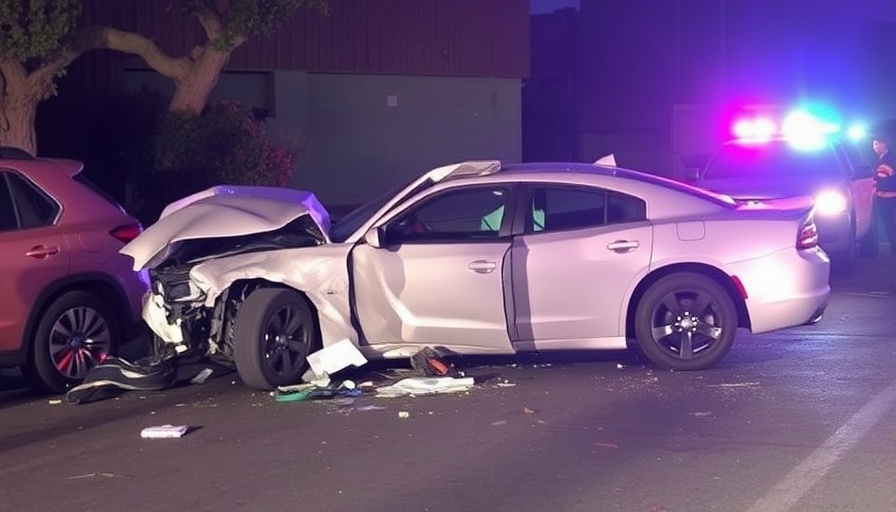
Unpacking the Charges Against Adrian Andrew Martinez
Adrian Andrew Martinez, a 20-year-old from Pico Rivera, has recently been charged with conspiracy to impede or injure federal agents. The incidents took place in a shopping center parking lot on Washington Boulevard, raising significant concerns over citizen interactions with federal authorities. The intersection of local criminal activities and federal intervention is a critical issue that plays out in communities across California, especially in areas that often grapple with crime and law enforcement dynamics.
The Incident: What Happened?
According to federal sources, Martinez was involved in a confrontation where he allegedly assaulted a Border Patrol agent. However, in the sworn statements, this specific detail was notably omitted, leading to questions about the circumstances surrounding the confrontation. This discrepancy highlights a critical aspect of legal proceedings where the narrative can significantly sway public perception and judicial outcomes.
Understanding Conspiracy Charges
The term 'conspiracy to impede or injure federal agents' is heavyweight. It indicates that authorities believe Martinez was involved in a coordinated effort to obstruct law enforcement operations. This kind of charge isn’t taken lightly; it speaks to intentions and planned actions rather than spontaneous acts. Such charges are often seen in cases where groups rally against perceived injustices, but they can often lead to serious consequences for individuals involved.
Local Implications: A Community Confronting Law Enforcement
For residents of Pico Rivera and the broader area surrounding Bakersfield, these events resonate strongly. The trial and its outcomes could shift how the local community interacts with law enforcement, especially federal agencies whose presence can be perceived differently depending on community narratives. This incident might spark community discussions regarding rights, interactions with law enforcement, and how to communicate concerns without escalating to violence.
Breaking Down Public Perspective
How citizens view federal agencies varies widely across different demographics and locations. Some see them as protectors, while others view them with suspicion, especially in communities with a significant immigrant population or a history of contentious interactions with federal authorities. This case could serve as a pivotal moment for public discourse on these themes. Martinez’s actions and the legal repercussions may influence local sentiment towards federal agents.
What’s Next for Martinez?
Martinez is facing serious legal challenges ahead. The prosecution is likely to outline a narrative that illustrates his involvement as part of broader anti-federal sentiment, which could play into public fears regarding such organized actions. His defense, conversely, might argue that there was no intent to 'injure' or impede any officials; instead, this might have been an isolated incident exacerbated by miscommunication. How this unfolds could set precedents for similar cases in the future.
A Broader Look: Trends of Confrontation Across California
This incident isn’t an isolated one. Ongoing tension and confrontations involving law enforcement continue to rise across California. According to recent statistics, areas with higher federal enforcement presence see rising public tensions, particularly in immigrant communities. The implications of such confrontations extend beyond individuals; they impact community perceptions of safety, trust, and civic responsibility.
Conclusion: A Call for Community Dialogue
This incident offers an opportunity for community dialogue around federal law enforcement and community relations. It underlines the necessity for constructive conversations aimed at bridging gaps between citizens and officials. As this case progresses, those in Bakersfield and surrounding areas should consider their role in shaping the narrative surrounding law enforcement and community interactions. Engaging in open discussions, understanding diverse perspectives, and advocating for peaceful resolutions could foster a more cooperative atmosphere.
 Add Row
Add Row  Add
Add 



Write A Comment